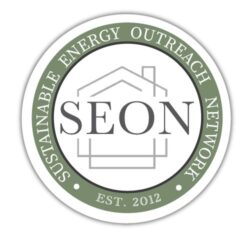Information from Delta Energy Works (DEW)
As the vibrant tapestry of Vermont’s fall foliage gives way to ‘stick season,’ the unique and visually stark transition between autumn’s splendor and winter’s chill, Brattleboro’s very own Delta Energy Works (DEW) captures the moment, heralding a revolutionary shift in home heating and cooling, championing the underutilized capabilities of heat pumps—a marvel in sustainable technology. Say goodbye to the conventional, and hello to efficiency, comfort, and environmental stewardship, as heat pumps promise a future that aligns with our values and our weather.
Heat pumps stand as beacons of innovation, transcending the limitations of traditional systems by masterfully transferring heat to and from your home, depending on the season. This isn’t just an upgrade; it’s a paradigm shift, positioning Vermonters to reap unparalleled benefits in energy savings and environmental impact. As we dive deep into “Heat Pumps 101,” prepare to unravel the layers of this game-changing technology, and discover why jumping on the heat pump train isn’t just an option—it’s a necessity for a greener, more sustainable Vermont.
- What are the key benefits of using a heat pump over traditional heating and cooling systems?
- Heat pumps move heat from one location to another, making them significantly more efficient (200-400%). If your electrical power comes from renewable sources, a heat pump adds very little to no pollution to the environment.
- Whereas a traditional heating and cooling system?
- Fossil Fuel based forced water or air systems heat by releasing energy that has been trapped for millions of years. The heat is then moved at roughly 80% efficiency based on the age of the system.
- Furnaces often take the heated and conditioned inside air, and force it out the chimney, to be replaced with air pulled in through building leaks.
- Can you address common misconceptions about heat pumps and provide clarifications?
- The heat pump will only run efficiently if your home is adequately weatherized and air sealed or the heat pump may quickly become undersized Heat Pumps heat and cool!
- By transferring heat from indoor to outdoor or outdoor to indoor, a heat pump works in all seasons to control the indoor environment.
- How does the energy efficiency of heat pumps compare to traditional HVAC systems?
- Although modern high-efficiency furnaces may achieve over 90% efficiency, a furnace that is over 15 years old is probably between 60 and 80% efficient.
- Heat pumps on the other hand may have an efficiency rating of 100% or greater (maybe even more than 400%).
- Heat pumps use a mechanical advantage and the behavior of materials (refrigerants) to move heat from one location to another.
- What factors should I consider when deciding between a single-zone and a multi-zone heat pump system?
- Single-zone systems may be able to perform better at lower outdoor temperatures due to the localized cooling each zone creates Multi-zone systems allow “zone heating” in a home–residents will be able to heat and cool to different temperature preferences.
- How can I assess my home’s heating and cooling needs before selecting a heat pump model?
- The best way to do this may be to have an energy auditor perform a whole-house energy audit. [SEON recommends starting with Efficiency Vermont’s Home Energy Assessments.] Assessing your needs may depend on how you want to use the system: one room, multiple rooms, replacing a central system?
- The most reliable way to determine how large of a system you need is to have an auditor or another professional perform a Manual J residential load calculation, a service which DEW provides. So called “Rule of Thumb” BTUs per square foot measurements may be enough but it depends on the quality of weatherization in your home.
- What kind of infrastructure or pre-installation requirements are necessary for a heat pump, and how can I prepare to have one installed?
- Again, it all depends on what you’re trying to do: make sure you have enough power.
- Most mini-split heat pump systems require 240v circuits for the larger systems. Make sure that your current circuit breaker box has enough space for the 20-50 amp breaker the system will require.
- Installing a mini-split may mean you have to upgrade your box from 100 to 200 amp service.
- Also, make sure your home is properly insulated and weatherized to accommodate the efficiency potential your heat pump has.
- What can I expect during the heat pump installation process and any potential disruptions?
- In general, heat pump installations are relatively straightforward with a small penetration of an outside wall.
- Most of the labor involved is dedicated to running the refrigerant line sets from outdoor to indoor units and this process may be shorter or longer depending on where the units are placed.
- Other labor factors may include electrical work, including running wire from the breaker box.
- With a heat pump, no chimney is required: In fact, it is best to plug any old chimneys, as they are a large source of heat loss.
- How does the initial investment for a heat pump compare to potential energy savings and long-term benefits?
- The Department of Energy indicates energy savings from installing heat pumps can range from $400 to $1000 per year.
- The initial investment for a heat pump is significantly less than replacing a fossil fuel burner.
- With rebates from Efficiency Vermont and certain utilities like Green Mountain Power, and federal tax credits, heat pump systems may pay for themselves within a few years of installation.
- In addition to cost savings, heat pumps improve indoor air quality by dehumidifying homes reducing risks of mold and mildew.
- As a bonus heat pump’s dual system of heating and cooling provides year round comfort to homes!
- What kind of customer support and aftercare do you provide post heat pump installation?
- DEW wants to make sure that customers (which include installers and end-users) trust the products they’re using. We are working on long-term monitoring systems that give us performance data in real time to understand how well the systems are working and if they need to be serviced quickly.
- We are always communicating with installers and other industry experts to understand how we need to adapt our model to customer preferences.
- We also offer a 10-year labor warranty that matches up well with TOSOT’s 10 year limited warranty.
- In what situations might a heat pump not be the best solution for my heating and cooling needs?
- TOSOT heat pump systems, provided by Delta Energy Works, perform extremely well in below 0-degree conditions.
- TOSOT’s ultra heat single zone systems are rated to perform at -22°F and multi-zone ultra systems are rated to -31°F.
- Can you discuss the noise levels of heat pumps during operation and measures to minimize them?
- Heat pumps generally operate at around 50 decibels which is about the sound level of a refrigerator.
- If heat pumps are installed on the exterior wall of a home, you may hear vibration, so it is recommended to install the systems on a ground pad outside.
- How might installing a heat pump affect my home’s aesthetic, and what options do I have?
- Delta Energy Works sells indoor systems that may be concealed in the ceiling, ductwork, on the floor with our mini consoles, or with the standard wall-mounted unit that has a very discreet modern appearance.
- What financing options or payment plans do you offer to make heat pumps more accessible?
- We do not currently offer financing or payment plans.
- What kind of maintenance and operational costs should I anticipate for a heat pump?
- The indoor units can become obstructed over time and the unit will have to work harder and harder to continue to condition the living space, therefore it is important to understand that like a forced air or water furnace, a heat pump requires regular cleaning.
- How do your heat pumps overcome performance issues in extremely cold conditions?
- If you have a home that is not well weatherized (insulated and air sealed), you risk installing a heat pump system that will work too hard to achieve a comfortable indoor climate. This doesn’t mean a heat pump is not a good solution for your HVAC needs–it may require a few more energy improvements before installation.
- How will my choosing a heat pump over a traditional furnace make me a better steward for the environment
- Reduced Carbon Emissions: Heat pumps do not burn fossil fuels directly, leading to significantly fewer carbon dioxide emissions, especially if the electricity source is renewable.
- Energy Efficiency: Heat pumps operate at 200-400% efficiency, meaning they utilize less energy to deliver the same amount of heating or cooling compared to traditional systems.
- Decreased Fossil Fuel Dependency: By using a heat pump, you reduce the demand for fossil fuels, which are a major source of greenhouse gas emissions and environmental degradation.
- No Combustion By-products: Traditional furnaces produce by-products like carbon monoxide, nitrogen oxides, and other pollutants. Heat pumps don’t produce these harmful emissions.
- Conservation of Resources: Heat pumps reduce the demand for non-renewable resources, like oil or natural gas, conserving them for future generations.
- Reduced Air Pollution: Less burning of fossil fuels means fewer pollutants in the air, leading to better air quality in your community.
- Water Conservation: Some traditional power plants require significant water for cooling, which can deplete local water sources and harm aquatic ecosystems. Using a heat pump reduces the demand on these power plants.
- Fewer Environmental Accidents: Reduced dependence on oil and natural gas means fewer chances of environmental disasters like oil spills.
- Support for Renewable Energy: As more people adopt heat pumps, there’s a stronger incentive for the grid to incorporate more renewable energy sources, leading to a cleaner power generation landscape.
- Less Land Degradation: Traditional fossil fuel extraction methods can lead to habitat destruction and land degradation. By reducing demand for these fuels, there’s less incentive for destructive extraction practices.
- Economic Signal: Investing in a heat pump sends a clear economic signal that consumers prioritize energy-efficient and environmentally-friendly solutions, which can influence market trends and policy decisions.
Join us in championing a greener future! Delta Energy Works (DEW) proudly partners with nonprofit SEON (Sustainable Energy Outreach Network) to uphold the gold standard in high-performance building and sound building science practices. Engage with Delta Energy Works (DEW) today and be part of the sustainable change we’re crafting alongside SEON.

